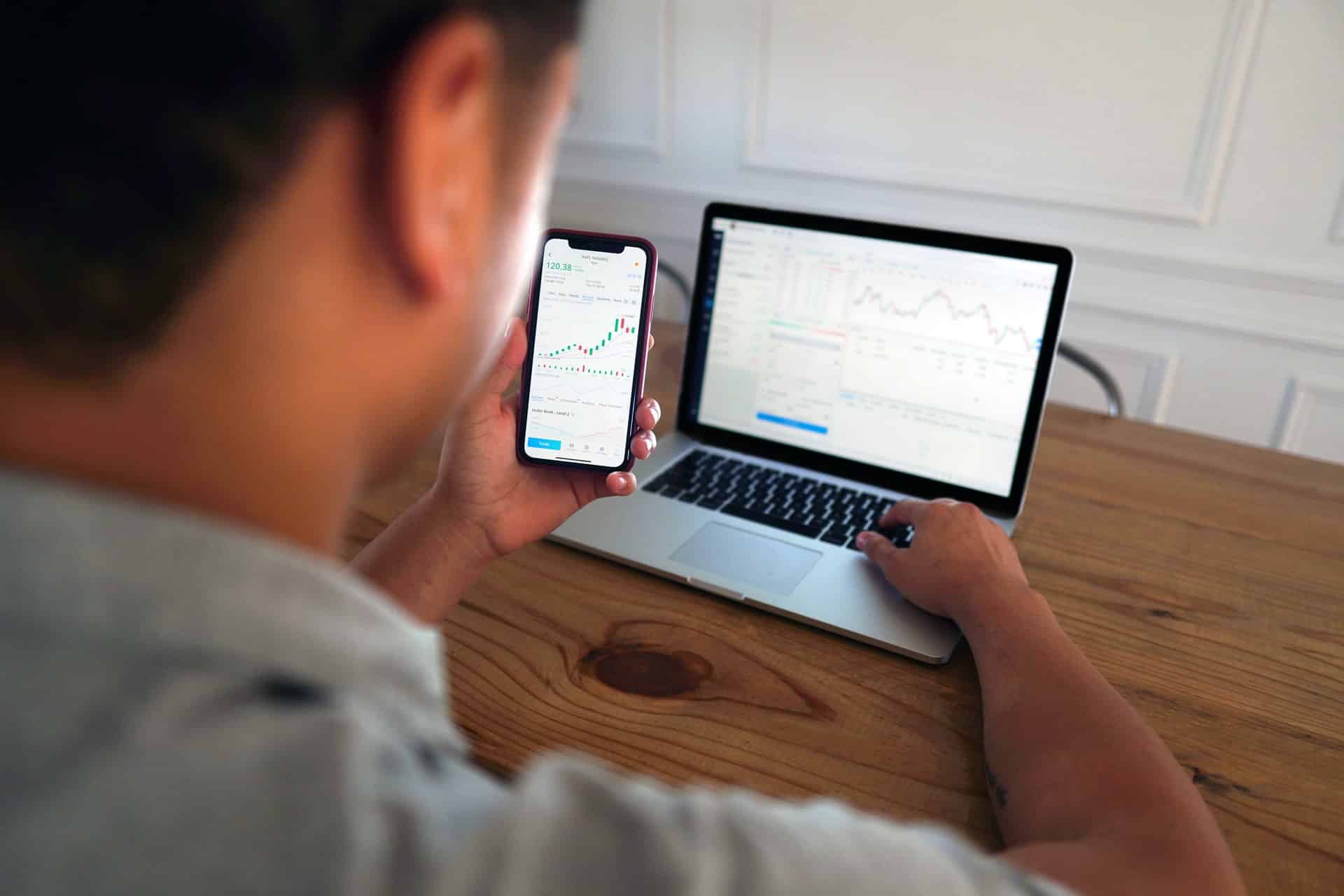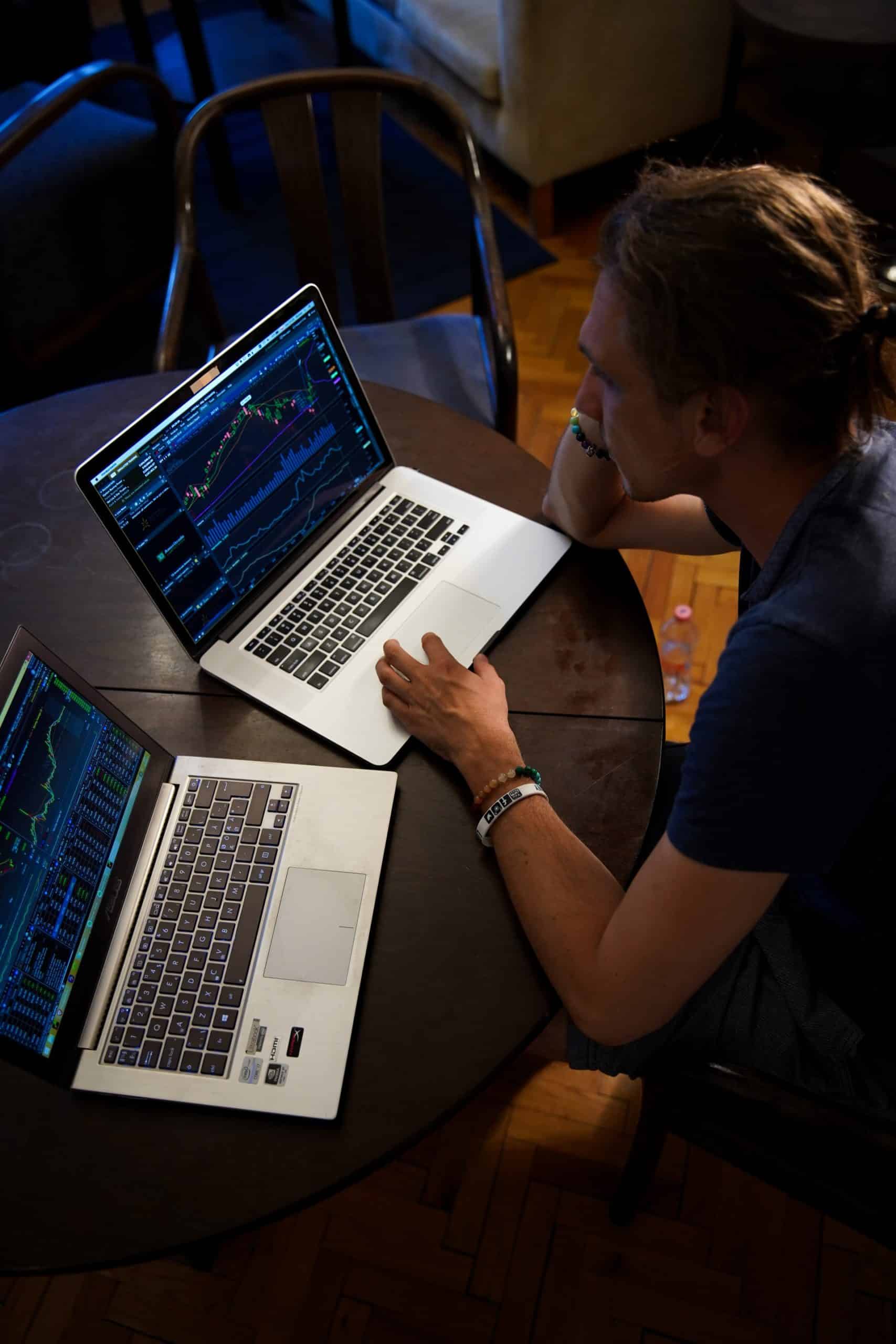This post focuses on the impact of COVID-19 on the global Forex markets and the changes caused by the Coronavirus pandemic. The world is witnessing an increased Forex market volatility never before experienced in the last two decades due to the impact of the COVID-19 pandemic.
World stocks and currencies are not left out as the world experienced a 30% loss in stock value; currencies spiraled downward, losing value against the USD. In fact, more local currencies were converted to USD in moves to avert the negative impact of covid 19 on local economies.
IMAGE: UNSPLASH
The Positive Impact Of COVID-19 On The Global Forex Market
Due to the raging COVID-19 pandemic, the increased forex volatility has attracted more brokers and traders into the forex market. Brokers enjoy a higher spread ratio due to increased volatility, translating to more profit for forex trading companies (brokers).
We see a rising increase in the number of traders, some using Vantage FX, as more traders rush to leverage the unprecedented high volatility experienced in the forex market. Besides, forex traders also leverage volatility in stocks and commodity markets to make profitable trades.
As the COVID-19 pandemic ravages, the world governments declared several lockdowns, grounding major economic activities, resulting in job losses and worldwide swelling unemployment figures. This has forced more employees to foray into forex trading as an alternative source of income.
More forex traders are swelling the forex market due to the low transaction costs. This surge in forex traders is more pronounced in African countries as it has paved the way for African traders with low capital to trade the FX market.
The Negative Impact Of COVID-19 On The Forex Market
The worldwide lockdown had a substantial negative impact on global markets and economies. We witnessed a significant slump in global stocks like the Dow Jones, which experienced a massive price slump uncomparable with past price slumps.
This has led to an increased loss in capital holdings as stockholders, and FX traders watch their capital holdings in indices spiral down due to trade losses for traders who placed their trust in stocks.
FX traders who traded in commodities such as crude oil recorded significant losses as they were caught in the Russian/Arabian trade war, which forced a sharp drop in oil prices as they hoped for an increase in crude oil price. For instance, the US oil price witnessed a sharp decline to a negative value of -$37, causing Hin Leong, a trading company in Singapore, to lose $800 million in oil futures.
The negative effect of COVID-19 has also caused more retail traders to lose money on margin trades due to increased forex market volatility. Forex brokers are not left out as they are also affected by the increased volatility. Not to mention, most FX brokers didn’t anticipate the sharp drop in oil prices to a negative value. In fact, forex brokers that facilitate leverage trading lost part of their capital as traders’ money drop below zero in their trading account due to the plummeting oil prices.
Interesting Changes In Forex Trading
Forex trading in Africa experienced an incredible 477% growth starting from February 2020. This astounding growth can be attributed to the lockdown effect as more people devoted themselves to studying and trading the FX market as an alternative source of income.
Due to Africans’ rising interests in the Forex market, more brokers lowered their trading capitals and admitted more Africans to their trading platforms.
Effects Of COVID 19 On The South African Rand(ZAR)
South Africa recorded the highest trading volumes in the African continent with over 20 billion dollars in trade investments at the end of 2019 and a record of 190,000 traders. As of today, there are more than dozens of forex brokers operating in SA. However not all of them are legit and it is, therefore, quite difficult to find a solid, reputable and FSCA regulated FX broker. Most likely for these reasons, a trading-focus portal TradingBeasts recently prepared a guide on how to find the best forex broker in South Africa in 2021.
Unlike other currencies and economies worst hit by the COVID-19 pandemic, we see the South African Rand emerging stronger against the US dollar. The Economist rated the South African Rand as the cheapest, being 62% undervalued against the US dollar based on the Big Mac Index. This was attributed to the economic news coming out of the country.
COVID-19 has a lesser impact on the South African Rand; however, it is influenced by the US Federal Reserve policy dictating the dollar’s direction. Also, the rise in the South African Rand can be attributed to a reduction in carry-trade volume. Most countries worldwide have cut down their interest rates due to the COVID-19 effect on the world economies, limiting carry-trade volume.
Investors would need a currency rising stronger against the dollar to get an appreciable carry-trade yield. Thus, the South African Rand is supported, hoping that the currency will continue rising against the dollar as the world recovers from the COVID 19 pandemic.
What Next?
Forex Market Volatility remained high in the year 2020. It is believed that the FX market volatility would be maintained throughout the year 2021 as the world continues to battle with the Coronavirus pandemic.
There is also a promising future for African currencies as they stabilized against the dollar. Hence, traders would likely make more profit this year, 2021. However, Forex trading remains a risky move as the FX market is riddled with uncertainties. Hence, forex traders are advised to trade with caution rather than making drastic trading decisions.
If you are interested in even more business-related articles and information from us here at Bit Rebels, then we have a lot to choose from.


COMMENTS